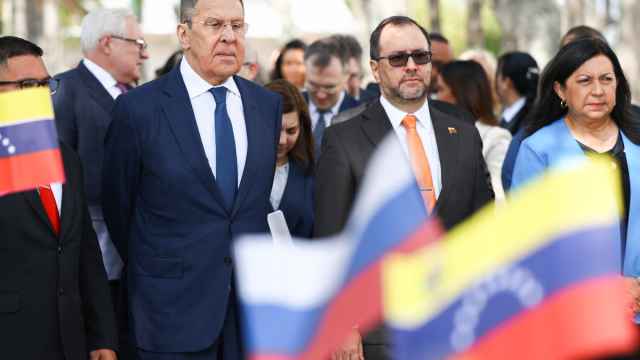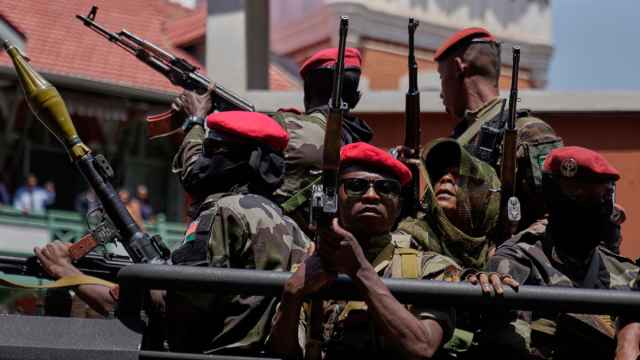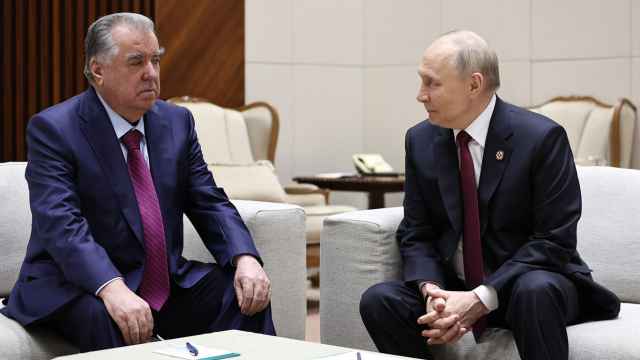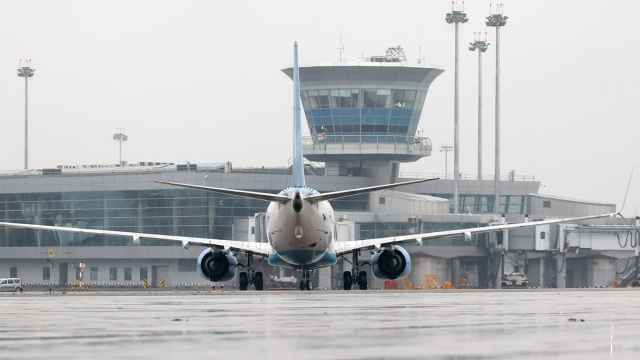Europe's two best-performing equity fund managers over the last decade invest in Russia from offices three blocks apart in Stockholm, but they are miles away from each other on just how risky a place it remains.
Peter Elam Hakansson of East Capital Group says the country is no more risky than other emerging economies and its stocks will beat those in rival markets by 25 percent in the next three years. Fredrik Colliander of Carnegie Fonder says corruption and corporate governance concerns justify a discount to nations such as Brazil. The two have each returned more than 700 percent in the past 10 years.
"Today when you buy the Russian stock market, you buy the same valuation as you did in 1999," said Hakansson, sipping tea on the 14th floor of his office, overlooking central Stockholm. "There will be a re-rating as people realize it's not as risky as it used to be."
Surging prices of oil and gas, Russia's biggest exports, haven't eased investors' skepticism so far over the country's corporate-governance record and legal protection for minority shareholders. Investor disputes involving Rosneft's partnership with BP and the government's control of firms such as Gazprom have kept the price-to-earnings ratio of Russian stocks at least a quarter lower than rival emerging markets Brazil, India and China.
"The present government has its own interests, messing with the economy in so-called strategic sectors," said Colliander, who has managed Carnegie's 603 million euro ($843 million) Russian fund since 2000. "That will continue for as far as we can see."
Hakansson, manager of East Capital's 1.9 billion euro Russian fund, has turned 10,000 euros invested 10 years ago into 97,700 euros today, making it the best-performing European stock fund with more than 350 million euros of assets, according to Morningstar. A 10,000 euro investment in Colliander's fund 10 years ago is valued at $70,300, the second-best performer.
The same 10,000 euro investment in the S&P 500 Index in 2001 would now be valued at 12,900 euros. Hakansson's fund is up 25 percent in the past year; Colliander's has risen 16 percent.
Although the MICEX Index of Russia's 30 largest publicly traded firms has more than doubled in two years, Hakansson and Colliander agree that cheap valuations relative to other emerging markets give room for growth. They're both picking Gazprom and LUKoil to benefit from higher oil and gas prices caused by demand from China and political instability in Northern Africa and are also buying banks, including Sberbank.
They are split over how Russian stocks should be valued compared with other emerging markets. "There's definitely risk when you invest in emerging markets, including Russia, but I don't see a reason for having a lower P/E than Brazil," Hakansson said.
Colliander, who worked in the commercial division of the Swedish Embassy in Moscow during the late 1980s, disagrees. "It should be a discount because of its specific issues," he said.
Gazprom, which is 16 percent of the MICEX Index, has a price-to-earnings ratio of 5.3, almost half European rival Royal Dutch Shell's ratio of 10.3. Even with oil prices within 5 percent of a 30-month high, investors have little confidence in the firm's management, Colliander said.
Gazprom was ranked among eight of the world's least transparent oil and gas companies in an annual survey published this month by Berlin-based Transparency International and Revenue Watch Institute. All major oil and gas deals in Russia are approved by Prime Minister Vladimir Putin.
Gazprom sold a 9.4 percent stake in Novatek for $1 billion less than its market price last year. "Why in hell would you do that?" Colliander said. "There's a cap on the whole market until they resolve things like that."
The stake's price was calculated using its average value over the six months before the deal, which was agreed in September, according to Gazprom spokesman Sergei Kupriyanov. "The deal was closed in December, when the share price was much higher," he said.
The MICEX Index beat all major indexes in Europe, Asia and the Americas from 2001 to 2008, rising almost 700 percent as the country bounced back from its bailout, buoyed by rising commodity prices and higher domestic consumption.
In the second half of 2008, the financial crisis wiped three years of gains from the index as it fell 68 percent, before a rally in oil and gas prices helped the index rebound to within 10 percent of its all-time high this January.
Even with the long-term gains, the MICEX's price-to-earnings ratio is 9.4, less than the 10.24 it was in 2003 and almost a quarter lower than Brazil's Bovespa Index. The main exchanges in China and India, as well as the United States and Britain, have ratios of 13.1 to 16.4.
Low valuations are a symptom of an economy dependent on natural resource firms whose stocks move with economic cycles and a legal system with little regard for minority shareholders, according to Joanne Irvine, who helps manage about $40 billion at Aberdeen Asset Management in London.
"The state is involved in a lot of the companies, and you have a lot of oligarchs dominating them," Irvine said. Russia is "one of the weakest places to invest from a corporate governance perspective."
The biggest threat to Russian growth today is from China, as opposed to the late 1990s when its economic problems were internal, Hakansson said. The world's biggest consumer of raw materials reported the largest trade deficit in seven years on March 10 as export growth slowed.
Colliander agreed that a global economic slowdown spurred by China would hit Russia hard. "If we get risk adversity coming in like we did a few years ago, Russia is the first sell," he said.
Unlike his cross-town rival, Colliander is also wary of Russia's propensity to surprise.
"We always get reminded of this special Russian issue," he said. "Something happens every two or three years. It's difficult to say what's it going to be next time, but something's going to happen. It always does."
A Message from The Moscow Times:
Dear readers,
We are facing unprecedented challenges. Russia's Prosecutor General's Office has designated The Moscow Times as an "undesirable" organization, criminalizing our work and putting our staff at risk of prosecution. This follows our earlier unjust labeling as a "foreign agent."
These actions are direct attempts to silence independent journalism in Russia. The authorities claim our work "discredits the decisions of the Russian leadership." We see things differently: we strive to provide accurate, unbiased reporting on Russia.
We, the journalists of The Moscow Times, refuse to be silenced. But to continue our work, we need your help.
Your support, no matter how small, makes a world of difference. If you can, please support us monthly starting from just $2. It's quick to set up, and every contribution makes a significant impact.
By supporting The Moscow Times, you're defending open, independent journalism in the face of repression. Thank you for standing with us.
Remind me later.





